The questions that college and university chaplains address are no less daunting than “What gives life meaning?” And according to the Rev. Paul Raushenbush, who gave the opening address at a Nov. 17, 2015, regional conference at Hartford Seminary, that particular question must be addressed head-on.
“If we don’t do it, there are people willing to do it for us,” the Huffington Post Religion Editor told about 80 conference attendees from around the Northeast.
His address also outlined five vital signs of spiritual life: curiosity, wonder, interconnectedness, meaning and well-being/resilience. Interconnectedness is especially important in the troubled times in which we live, he said. “Religious isolation is a myth.”
The conference was co-sponsored and supported by a grant from the National Association for College and University Chaplains.
Chaplains of many different faiths and denominations came to the Seminary for a regional professional development gathering that might grow into an annual event. Chaplains attended breakout sessions that covered topics such as “Chaplaincy on a Secular Campus,” “Suicide Prevention and Postvention,” “Incorporating Mindfulness Practices into Chaplaincy,” “Islamophobia and Providing Care to Muslim Students,” “Providing Support to Survivors of Sexual Assault,” and “Mobilizing Social Media.”
Lucy Forster-Smith, Chaplain and Senior Minister at Harvard University, gave the closing plenary address. She spoke about writing her own memoir of chaplaincy, and asked the participants to consider how they would tell their own stories.
Videos show the opening and closing plenary sessions. Please share!
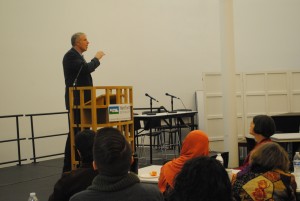
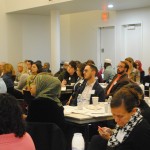
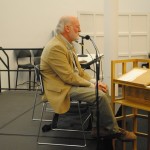
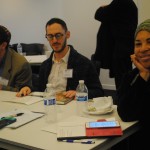


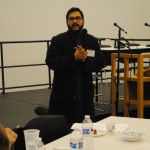
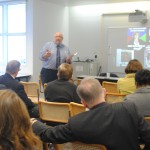
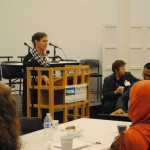
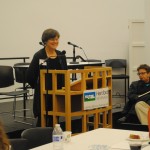
 Sign-up now ›
Sign-up now ›